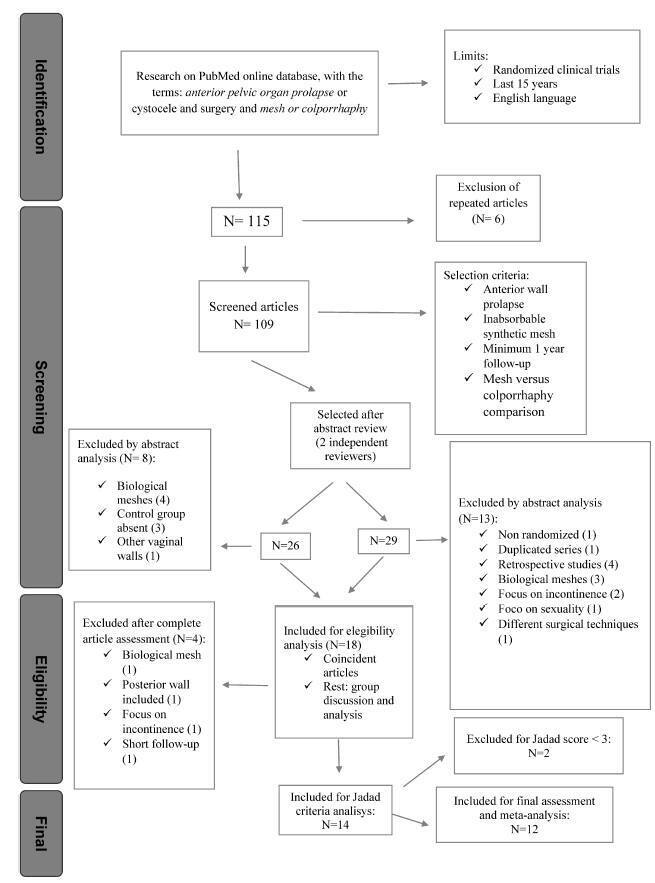Revista Brasileira de Ginecologia e Obstetrícia. 07-01-2016;38(7):356-364

Pelvic organ prolapse (POP) is a major health issue worldwide, affecting 6- 8% of women. The most affected site is the anterior vaginal wall. Multiple procedures and surgical techniques have been used,with or without the use of vaginalmeshes, due to common treatment failure, reoperations, and complication rates in some studies.
Systematic review of the literature and meta-analysis regarding the use of vaginal mesh in anterior vaginal wall prolapse was performed. A total of 115 papers were retrieved after using the medical subject headings (MESH) terms: ‘anterior pelvic organ prolapse OR cystocele AND surgery AND (mesh or colporrhaphy)’ in the PubMed database. Exclusion criteria were: follow-up shorter than 1 year, use of biological or absorbable meshes, and inclusion of other vaginal wall prolapses. Studies were put in a data chart by two independent editors; results found in at least two studies were grouped for analysis.
After the review of the titles by two independent editors, 70 studies were discarded, and after abstract assessment, 18 trials were eligible for full text screening. For final screening and meta-analysis, after applying the Jadad score (> 2), 12 studies were included. Objective cure was greater in the mesh surgery group (odds ratio [OR] = 1,28 [1,07-1,53]), which also had greater blood loss (mean deviation [MD] = 45,98 [9,72-82,25]), longer surgery time (MD = 15,08 [0,48-29,67]), but less prolapse recurrence (OR = 0,22 [01,3-0,38]). Dyspareunia, symptom resolution and reoperation rates were not statistically different between groups. Quality of life (QOL) assessment through the pelvic organ prolapse/urinary incontinence sexual questionnaire (PISQ-12), the pelvic floor distress inventory (PFDI-20), the pelvic floor impact questionnaire (PFIQ-7), and the perceived quality of life scale (PQOL) was not significantly different.
Anterior vaginal prolapse mesh surgery has greater anatomic cure rates and less recurrence, although there were no differences regarding subjective cure, reoperation rates and quality of life. Furthermore, mesh surgery was associated with longer surgical time and greater blood loss. Mesh use should be individualized, considering prior history and risk factors for recurrence.
Search
Search in:


Comments